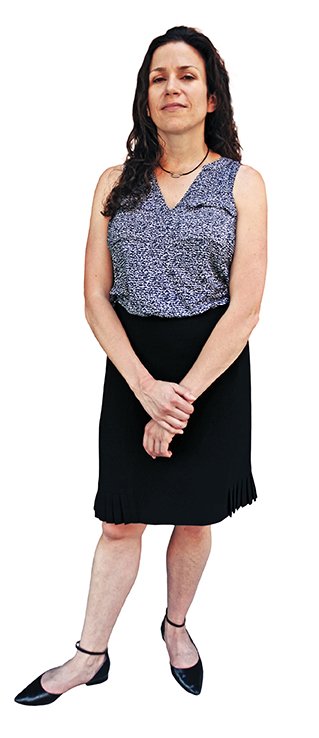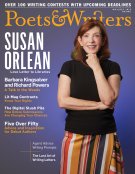In April, Emily Nemens, then the coeditor of the Southern Review in Baton Rouge, Louisiana, was named the new editor of the Paris Review. Nemens started the new position at the Paris Review’s New York City office in June and succeeds Lorin Stein, who resigned in December 2017 amid allegations of sexual misconduct toward female staffers and writers. Nemens takes over a storied publication that is much more than a print quarterly—the magazine regularly runs online content, produces videos and a podcast, hosts events, and publishes books through Paris Review Editions. A few weeks before the Fall 2018 issue, her first, came out, Nemens spoke about her plans for the Paris Review and her approach to editing.

Emily Nemens (Credit: Murray Greenfield )
Are there any new series or forms of coverage for the print quarterly in the works?
The guest poetry editor program is really exciting. The Winter Issue, which comes out in December, will be with Shane McCrae picking the poetry. I’m really excited to work with him. I think the magazine does so much really well, and I don’t want to close the door on that—I really just want to support it. So I think there will be incremental growth across all the sections of the magazine. I’d really like to reengage with the essay, which wasn’t always in the magazine, so making a point to reconnect with that form is a priority. I have a visual arts background, so I’d like to collaborate with the arts community to not just figure out striking covers, but to really engage with what’s going on in the art world. For fiction, I’m trying to broaden the kinds of stories that are featured and the emotional motivation and narrative arcs of the stories. There’s a lot going on in fiction now, and the magazine of course reflects my taste and my staff’s taste, but it’s exciting to broaden the kinds of stories told.
How do you want to broaden the review’s fiction?
I think there are different kinds of motivations for stories. Reading the archive, I felt like we hit on the same notes too often in terms of what motivated characters to set out on their journeys. I want to think more about different emotional needs and motivations. There is definitely a theme of loneliness in some of the stories [in the Fall 2018 issue], which I think might be the cultural moment. I read a lot of stories about social media and isolation—to the point where I actually had two really good stories that revolved around the same thing, so one will be in [the Winter 2018 issue]—but I want to think about different inspirations and aspirations for characters in different forms. My personal taste is towards a very long and complicated short story—something in the lines of a Deborah Eisenberg or Adam Johnson story where there’s an entire world—but the Fall issue also features an eight-hundred-word story and a four-hundred-word story. So I’m really thinking about the mechanics of the form and how they can be stretched or compressed and what happens when you do that.
What notes do you think were hit too often in the fiction archive?
There are so many good stories in the archive, and I don’t want to discount that. I do think that there were a lot of New York stories, and there were a lot of romantic attainment stories about finding a partner. That pursuit is a huge part of life, but it’s not the only part of life. There’s also family, there’s also career, there’s also travel, there’s also adventure, there’s also physical attainment in terms of mountain climbing, or whatever it is. There are a lot more things than winding up in the sack, to put it a little too crassly. So I was just reading with that in mind.
How many stories did you read for the Fall 2018 issue?
A few hundred, I’d say. Which is pretty normal. When I was at the Southern Review, I put eyes on every story. And it was about 1 or 2 percent acceptance, so right along those lines.
The Southern Review and the Paris Review publish writers from all over the country and the world, but both seem like journals very tied to a region—the Southern Review to the South and the Paris Review to New York City.
The Paris Review is a real New York institution and that’s really exciting, but I don’t think it needs to be exclusively that. I think it can maintain its ties and relationships to the engine of New York but also bring more people into the fold.
From working at both these journals, do you think the region where a journal’s office is located affects the aesthetic of the journal?
I don’t think it has to. I think it’s really in the perspective of the editors. In certain times of the Southern Review’s history, it was run by Southern scholars who every five years—more often that that—would edit special issues that were just on the state of literature in the South. And that was great and important for the magazine at the time and did a lot to establish it as a powerhouse in regional literature. But when I was there, for the five years I was editing the magazine, my focus was really more on the short story and finding the best short stories and featuring them and celebrating the form. So I wasn’t distancing myself from the legacy, but I wasn’t emphasizing it. So I think the same can happen here, where I don’t want to distance myself from the city and the literature here and everything that’s happening culturally in the city—but know that we can do something else too. And we’ll still exist in this universe. We’ll still be doing programming in the city, but I think we’ll bring the magazine to other events. I’m going to be at the Association of Writers and Writing Programs conference in Portland and doing some public programming in Philadelphia and out in California. I don’t want to turn my back in New York and all the wonderful things happening here, but I think having lived and worked in a place where there aren’t as many cultural opportunities makes me want to spread the wealth.
When you were at the Southern Review, you were coeditor with Jessica Faust, and it seemed like the two of you had a really great collaborative process from start to finish. What is it like adjusting to being more on your own?
I’m at the top of the masthead, but I’m still working with a really talented group of colleagues. The buck stops with me, and the editorial selection stops with me, but my editorial assistant, for example, shared a story that ended up in the Fall issue, and my associate editor did, as well. It’s different. It’s definitely reorienting. I love the coeditor structure just in terms of my personal approach to hierarchy—so I’m bringing some of that collaborative spirit and collegiality to the magazine, which feels really good, and I think is refreshing here.
After Lorin Stein resigned in December, the journal’s board members released a statement saying that they had “revised [the Paris Review’s] code of conduct and anti-harassment policies.” How do you hope to build on that?
The board did a lot of good and important work before I ever got here. I was brought up to speed on all of those new policies, and there was great workplace sensitivity training and a lot of other resources brought in this spring. So I feel like a lot of the hard work was done before I arrived. But understanding really what it means to be in a safe and collaborative and collegial work environment and emphasizing that every day—that’s where I come in.
How do you think you can achieve that?
It starts and ends with respecting everyone in the office no matter what their role is or how long they’ve been here. I think it’s being sensitive and empathetic to people’s work, but also to their lives outside of work without prying. And understanding that we’re all colleagues, but we’re also people, and just having that be my baseline as a boss. I’ve been trying to systematically work my way around the office and figure out with people what they’re working on, what they want to be working on, and what their short- and long-term goals are. I think starting with that and making sure we’re having regular check-ins sets a precedent for this as a dynamic and caring place.








